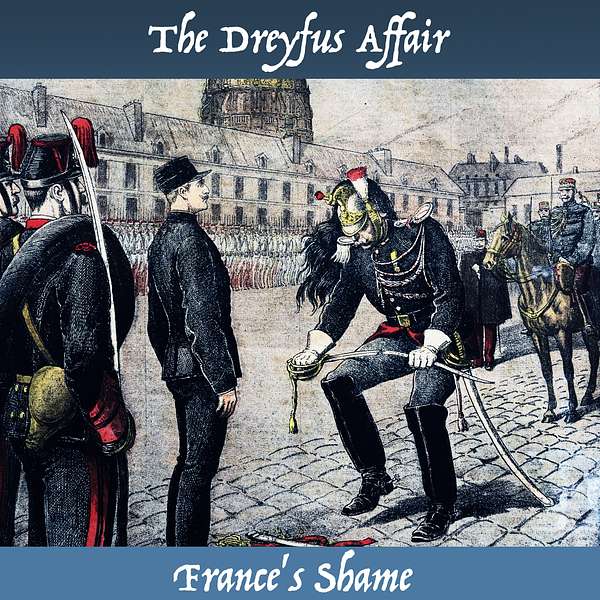
La Fayette, We Are Here!
La Fayette, We Are Here!
The Dreyfus Affair. France's Shame
Use Left/Right to seek, Home/End to jump to start or end. Hold shift to jump forward or backward.
Liberté, égalité, fraternité. This is the French Republic’s motto. Liberty and equality are also in the first article of the "Declaration of the Rights of Man and of the Citizen" of 1789. The French are very proud of that heritage, of France’s struggle during and after the Revolution. They think of their homeland as the cradle of liberty in Europe, as a welcoming and understanding land, ruled by reason and intellect, rather than by prejudice and bigotry. Sadly, those clear and healthy waters of freedom and justice often got muddied over the years.
In the late nineteenth century, France was a wounded country. Her honour had been tarnished in 1870-71 and her population was deeply traumatized by the civil war that ensued. Fears of an enemy, and of traitors, was at an all time high. This very specific phase mixed with an element older than France herself: antisemitism. In 1894, captain Alfred Dreyfus would suffer greatly as a consequence of those elements. Although there are some saving graces, and some might even say a silver lining, this whole series of events really are France’s shame!
Timecodes:
Introduction
03:38 - La Belle Époque
08:48 - Alfred Dreyfus, Jewish French officer
14:28 - Dreyfus Arrested
21:17 - L'Affaire begins
26:07 - J'accuse...!
34:03 - The Rennes Trial
39:20 - Rehabilitation
44:10 - Conclusion
Music: Marche pour la cérémonie des Turcs, composed by Jean-Baptiste Lully, arranged and performed by Jérôme Arfouche.
Artwork: "The traitor: Degradation of Alfred Dreyfus, degradation in the Morland Court of the military school in Paris" front page of the illustrated supplement of the Petit Journal, Sunday, January 13, 1895.
Recommended link: The Siècle podcast by David H. Montgomery, available at http://thesiecle.com/
Reach out, support the show and give me feedback!
The Dreyfus Affair. France's Shame
Liberté, égalité, fraternité. This is the French Republic’s motto. Liberty and equality are also in the first article of the "Declaration of the Rights of Man and of the Citizen" of 1789. The French are very proud of that heritage, of France’s struggle during and after the Revolution. They think of their homeland as the cradle of liberty in Europe, as a welcoming and understanding land, ruled by reason and intellect, rather than by prejudice and bigotry. Sadly, those clear and healthy waters of freedom and justice often got muddied over the years.
In the late nineteenth century, France was a wounded country. Her honour had been tarnished in 1870-71 and her population was deeply traumatized by the civil war that ensued. Fears of an enemy, and of traitors, was at an all time high. This very specific phase mixed with an element older than France herself: antisemitism. In 1894, captain Alfred Dreyfus would suffer greatly as a consequence of those elements. Although there are some saving graces, and some might even say a silver lining, this whole series of events really is France’s shame!
Welcome to “La Fayette, we are here!”, the French history podcast, by a Frenchman! I am your host, Emmanuel Dubois, and today we are talking about the Dreyfus Affair, this judicial and human saga who shook France at the turn of the Twentieth century. Before we begin, allow me an acknowledgment. I am aware of the current crisis in the Middle East and of the tensions between the various communities. This episode was planned months ago and has nothing to do with current events. The Dreyfus Affair is a major event in French history and has been on my list of topics to examine when I first created the podcast actually. That being said, I will talk about prejudice, antisemitism, bigotry and other nefarious behaviours. Hopefully, it will indeed help some listeners in their understanding of the world we live in.
For this particular episode, I will have proceed with care and with ample context. Hence, I will first discuss late nineteenth century France as a whole, before tackling the affair that is our topic for today. It did not happen in a vacuum and it didn't have the huge impact it had for nothing. What will be known as the Dreyfus Affair had deep roots, some that many would like to ignore, even today. It shook France to its core and, sadly, was prescient of horrors to come later in Europe, a couple generations down the line. Without further ado let's dive into la Belle Époque, France at the turn of the twentieth century!
La Belle Époque
Nineteenth century France is a remarkably complex period to study. I want to point out the remarkable The Siècle podcast by David H. Montgomery who focuses on that specific era in French history. Let met just give you a very, very quick broad view.
First, we have the defeat at the end of the Napoleonic Wars in 1815. France is crushed, exhausted, humiliated and a pariah on the European diplomatic scene. Over the next few decades, she will slowly regain her status as a major diplomatic, economic and military power, but it'll be difficult and painful. She also faced major internal struggle who led to major changes in the country's governance. In 1830, king Charles X is forced to abdicate and is replaced by Louis-Philippe, a more moderate sovereign. But he falls to a second revolution, the one of 1848 in a movement that shook the whole of Europe. The French Second Republic is proclaimed in February 1848. It won't last very long though.
Her president is a fellow named Louis-Napoléon Bonaparte. Yup, from these Bonapartes. He's actually Napoléon's nephew and he also has great ambitions. In 1851, he organizes a coup to stay in power and gain more control over France. He succeeds and in December 1852, the Second French empire is proclaimed, with Louis-Napoléon Bonaparte now known as Napoléon III, emperor of the French. For those who wonder who Napoléon the Second was, that would be Napoléon's son who is recognized has having reigned from June 22nd to July 8th 1815, after his father abdicated in his favour. He is better know to posterity as L'Aiglon, or the eaglet.
Napoléon III will stay in power until 1870 and the terrible defeat that France suffers at the hands of Prussia in the Franco-Prussian war. Napoléon III has to leave power and the Third Republic is proclaimed in September 1870 while the war still rages on, even though France is effectively defeated. In the following months, France is torn apart by a series of terrible civil wars known as the Insurrectional Communes. Composed of Frenchmen and women who refused both the defeat and the new French government, it led to major conflicts until 1871. The most famous is the Parisian commune, which ended in May 1871 during a repression nicknamed "The Bloody Week". I don't think the nickname deserves much explanation. To make matters worse, France has to give up Alsace and Lorraine to the newly formed German Reich, a wound in the French spirit that would never heal until avenged by French arms.
To sum it up, from 1815 to 1870, France has had five major changes of political regimes, two devastating wars on its soil, and a couple of civil wars along the way. Paradoxically, she also grew tremendously on the political and economical levels. Her industries were booming, her colonial empire was experiencing a second life in Africa and in Asia, her merchants and businessmen were everywhere. French science and arts were recognized as some of the finest in Europe, often THE finest. That is why this period is known as La Belle Époque, the Beautiful Era. But after 1871, France is a country full of doubts, shame and fear. Doubts about herself, about her regime. Shame because of her defeats at the hands of the Prussians. And fear, fear of the unknown, of the new German Empire and fear of the enemies from within. The hidden ones, the vicious ones, the ones who would see France fall again, who would undermine her surreptitiously over the years. In the minds of many Frenchmen and women of that era, that hidden enemy was easily identified: the Jews.
Alfred Dreyfus, Jewish French officer
Our protagonist, Alfred Dreyfus, is born in Mulhouse, Alsace, in 1859. As a kid, he experiences the French defeat and his family is faced with a choice. Stay in Alsace and become Germans, or leave and stay French citizens of that newly proclaimed Third Republic. The chose the latter, leaving their home, but remaining French. The Dreyfus are an industrial family, relatively wealthy. Alfred's brothers become either industrialists or merchants. But Alfred has other aspirations, he wants to serve his country. His family questions the wisdom of such a choice, perfectly conscious of rising antisemitism in France. Alfred preservers and attends Polytechnique, where he graduates in 1880 as an Sub-lieutenant in artillery.
I just mentioned that antisemitism was growing in France at the time. Let me explain that a bit. France, as a catholic country, has always had a degree of antisemitism. As the story goes "they killed Christ" and Catholics hold a very long grudge. Trust me, I know, I was raised Catholic and heard it from the source. Jews suffered pogroms, mistreatments, exiles, murders and other State cautioned atrocities from the middle ages to the modern era. But in the late 1870's, they face another problem. Many French Jews are Ashkenazi, with origins from central Europe, even if they've lived in France for centuries, like the Dreyfus. Nevertheless, they often have Germanic sounding names and speak Yiddish, a language resembling German. In a context where the Germans were being seen as the enemy, you can see how many French draw a shortcut between being a Jew and being a German agent in hiding.
Paranoia was everywhere and it was enhanced by right-wing politicians or businessmen with strong antisemitic views. Articles were written in newspapers like La Libre Parole, the Free Speech, to prevent Jews from entering the French army or from having some liberal jobs. Sounds familiar? Indeed, the Nazis did much of the same with the Nuremberg Laws in Germany in 1935. Even though France didn't pass such laws at the time, an important part of her population agreed with these horrendous views. Alfred Dreyfus knew all that and yet he chose to become an officer in the French army. He trusted the French Republic with his life, literally. That alone, says volumes about his character.
I should say that France was not alone in this, many other European countries were experiencing growing antisemitism for various reasons. European countries, even the most liberal, were at their core, Christian societies with various degrees of antisemitism. An example of that is the publication of the The Protocols of the Elders of Zion in Russia in 1903. This document was created from scratch by Russian security officers to make people believe that the Jews were involved in a conspiracy to take over the world through finance and to enslave Christians. It gained much traction in Europe and even in America, being used by right-wing movements in Europe, like the Nazis in the 1920s, and by white supremacists movements in America. This ridiculous document is but a symptom of this deeply human behaviour. When in doubt, look for a scapegoat. In 1894, some high ranking officers used that doubt as weapon to accomplish a terrible mischief against France and one of her best servants.
Since the 1880s, France was preparing for her revenge agains Germany. Everyone knew it was coming, the only question was "when?". As we know, the moment would come in 1914, but in the meantime, the French were modernizing the army. That meant huge military programs to develop and produce knew weapons. At this time period, artillery was becoming more and more technologically advanced. The French had been in part defeated by superior German artillery in 1870 and they wanted to regain the advantage in that area. They remembered that Napoléon was an artillery officer and that his clever use of canons won him several battles. Therefore, artillery development was vital in the French army, but also the subject of the most important and classified research. If an enemy spy wanted to compromise France's efforts for the next war, targeting her artillery program was the obvious target.
Dreyfus Arrested
Now that we are familiar with the context of the time, let's examine the affair itself. In 1894, Alfred Dreyfus is an artillery captain. Despite the prejudice against Jews in the army, he rises and is recognized has hardworking, intelligent and patriotic. But on October 15th, 1894, his life is turned upside down. Alfred Dreyfus is arrested at the War Ministry and thrown in a military jail. He's accused of high treason, of having offered French military secrets to the Germans. He doesn't know it yet, but he was embarking on an ordeal that would last until 1906.
There was indeed an act of treason, and a letter was found in a trash can at the German Embassy, establishing that a French officer had given military documents to the Germans. The war Minister, Général Berthier, and some of his colleagues examine the letter, after it was brought to them by Colonel Hubert Henry, an officer in French Intelligence. They determine that it belongs to Alfred Dreyfus. The poor captain is to have military trial, the Conseil de guerre, a closed trial.
An even remotely close examination of the letter by any decent graphologist would reveal that this letter was in fact not written by Dreyfus. It was actually written by the real traitor, Ferdinand Esterhazy, a catholic officer. Dreyfus was identified as the suspect after his handwriting was quote and quote "recognized" by lieutenant-colonel d'Aboville and confirmed by Colonel Henry. In fact, the army wanted Dreyfus to be guilty. As an Alsatian Jew, he was seen as more German than French by many ultra-nationalists. A brilliant officer, an intellectual who was rising through the ranks, he represented everything the traditional cast of French officers resented. He was the ideal culprit.
A couple weeks after his arrest, the story comes out in the press. Until then, it was treated as a security matter, not worthy of being told to the public. But after an article about it is published in the Figaro, journalists from all the political spectrum start writing about it. Many of them are using this to bash on French Jews, proving that they are in fact traitors and should be expelled from the army. One of these hardliners is Édouard Drumont, owner of the newspaper La Libre Parole and cofounder of the National Anti-Semitic League of France. I'm not kidding, this was actually a thing. Drumond writes articles after articles with titles like "Down with the Jews!" And hoping for Dreyfus to be condemned.
On December 22nd, 1894, Alfred Dreyfus is condemned for treason to, quote: "the removal of his rank, military degradation, and perpetual deportation to a fortified enclosure." Dreyfus is utterly devastated. He escapes the death penalty as it had been abolished in 1848 for political crimes. Nevertheless, his fate is not much better. After his planned public humiliation, he's to be sent to the bagne in Guyana, one of the worst places to be incarcerated in.
On January 5th 1895, Dreyfus is brought to the École Militaire, the Military School, in Paris. In front of a violently antisemitic crowd, Dreyfus is brave. Moments before the degradation he exclaimed quote: "Soldats, on dégrade un innocent ! Soldats, on déshonore un innocent ! Vive la France ! Vive l'armée ! ", or in English "Soldiers, we are degrading an innocent! Soldiers, we are dishonoring an innocent! Long live France! Long live the army!", end quote. Moments later, adjutant Bouxin rips his insignias from his uniform and throws them on the ground. He then proceeds to grabbing Dreyfus's sword and breaking it with his thigh. While all this is going on, the crowd yells "Death to Judas! Death to the Jew!".
In Late February, Dreyfus is deported to the prison in Guyana. To be precise, he's sent to the île du Diable, the Devil's Island. He's to be alone on this tiny island, alone with his guardians that is. They don't talk to him and he's forbidden from talking to them. He's also forbidden from walking more than a few minutes per day. He's confined to a small room, about 4x4 meters. He has almost no contact with the outside world. The few letters he's allowed to receive are redacted, any information about the world outside of the island is forbidden. Even by late nineteenth century standards, those conditions are brutal.
Dreyfus is now in a black hole. A black hole made by the French authorities off the coast of South America. With Aflred Dreyfus, they had manufactured a culprit. He was judged not according to proof, but according to who he was. He was a Jew, he was Alsatian, and that was enough to convict him. The army was satisfied with this. The government was satisfied with this. Worse, for the most part, the French public was also satisfied with this. But the truth is like water in a pot on the fire. If you try to cover it, it erupts!
L'Affaire begins
From 1895 on, Alfred Dreyfus has absolutely no idea of what is going on in France. As far as he knows, he's convicted and there is absolutely nothing he can do about it. As I said, he's not even allowed to talk! Imagine what this does to a human being. This would have been horrendous treatment to inflict anybody. But in this case, France was inflicting it to an innocent and one of her bravest and most devoted sons! What Dreyfus didn't know, was that his family, especially his wife Lucie and his brother Matthieu were not giving up. They were doing everything in their power to have the sentence reevaluated, properly this time. For a year, almost nothing happens. But in 1896, things start moving again.
Matthieu and Lucie work tirelessly to establish that the trial was a farce and that captain Dreyfus was condemned without proof. That also means that the real traitor is out there, maybe still spying for Germany! That ought to get somebody's attention. And indeed, it did. They are helped in their quest by journalist Bernard Lazare. He's doing what we'd call now "investigation journalism", something utterly new at the time. He wants to get to the bottom of this and helps the Dreyfus family. They also have the support of some French politicians, including the Alsatian member of the National Assembly, Auguste Scheurer-Kestner.
The first shift however, comes from the army itself. In late 1895, the French counter-intelligence has a new chief: colonel Georges Picquart. Picquart is troubled by the Dreyfus trial, he knows there is something wrong with the whole procedure. Even though he's a career military officers, he doesn't believe blindly what he's told by his superiors. They urge him not to dig any deeper, not to stir the pot so to speak. But Picquart won't have it, he keeps digging. In 1896, Picquart comes across a torn apart telegram written by the German military attaché Maximilian von Schwartzkoppen to the French officer Esterhazy. He wants him to stop spying for Germany, as he is not efficient enough. Picquart is astonished. He then finds letters written by Esterhazy and compares them to the letter that was used to condemn Dreyfus. There is no doubt about it, it's the same handwriting. Esterhazy is the traitor, not Dreyfus.
Picquart goes to his superiors with this. Again, he presses for another trial, for the truth to be exposed. He's told to keep quiet. "Think of the scandal! Think of the army's reputation, of France's reputation", thats the generals' motto, including the war minister's, general Jean-Baptiste Billot. But Picquart won't have it and they know it. Imprisoning Picquart was not an option, so they found another way to silence him. After a brief period during which the high military command muddies Picquart's name, the colonel is sent to Tunisia, with a regiment of Algerian tirailleurs. Far from France and close to danger, Picquart should not be a problem anymore. But the colonel didn't want the truth to be buried once again, so he told everything to his lawyer, Louis Leblois.
Leblois, concerned for his client's safety, chooses to disclose all the details to Auguste Scheurer-Kestner. The Dreyfus case had transformed into the Affaire Dreyfus. Thanks to Scheurer-Kestner, it would be rekindled and thrust into the public sphere for discussion. This conflict would give rise to two factions: the Dreyfusards and the anti-Dreyfusards—those in support of Dreyfus and his opponents. These factions would shake French societal foundations until they yielded.
J'accuse...!
The tide starts turning for Dreyfus in 1897. Scheurer-Kestner is persuaded that Dreyfus is innocent and that Esterhazy is guilty and he wants to right that horrendous wrong. He appeals to the president of the French Republic, Félix Faure, but to no avail. Faure is not interested in a public trial, he denies Scheurer-Kestner. But another factor is coming into play: public opinion.
Since the affair became public, it divided French society. Newspapers from both sides of the political spectrum are publishing articles for or against Dreyfus. Basically, some are publishing antisemitic pamphlets while the others are fighting them. France is deeply conflicted on that issue. One of her favourite authors, a renowned novelist respected for the quality of his research for his novels, is appalled by what he reads. He sees the hatred against the Jews grow in his country and he's deeply troubled by it. In May 1896, he'd write this in the Figaro, quote: "There is a handful of madmen, fools, or cunning individuals who shout at us every morning: 'Let's kill the Jews, eat the Jews, massacre, exterminate, return to the stakes and persecutions. [...] Nothing would be more foolish, if nothing were more abominable.", end quote. That man, is Émile Zola.
By 1897, Zola is a made man. He's very prosperous, extremely popular, and famous in the whole of Europe. His series of novels, the "Rougon-Macquart", which includes famous titles like Germinal, Nana or La Bête humaine, has been a tremendous popular and critical success. Zola doesn't need to engage himself in this conflict. Sure, he publishes the occasional piece of opinion to fight antisemitism or other social injustices, but as of yet, he's not directly involved. Scheurer-Kestner decides to contact Zola and to give him all the elements of the dossier on Dreyfus. After reading them, Zola is convinced that Dreyfus is innocent and kept in the bagne for ideological and political reasons. In late 1897, his decision his made, he will get involved, with all is being. And trust me, my friends, Zola will prove that the pen is mightier than the sword.
After analyzing the whole thing, Zola publishes an extremely well researched article on January 13th, 1898. It is labeled as a "letter to Mr. Félix Faure, President of the Republic". Its title : J'accuse...!, I accuse. To this day, it is considered a masterpiece of investigative journalism and of literary eloquence in a journalist work. Zola is a master writer and an obsessive researcher. These qualities come to fruition in this article, where he demonstrates that Dreyfus was condemned on bogus grounds and that Esterhazy was indeed the real traitor. He then proceeds in accusing the General staff and the Ministry of War of multiple crimes. This article is over 4,000 words long, but let me read you an short excerpt, quote:
"I accuse General Billot of having had in his hands the certain evidence of Dreyfus's innocence and of having suppressed it, of being guilty of this crime against humanity and justice, for political purposes and to save the compromised high command.
I accuse General de Boisdeffre and General Gonse of having become accomplices in the same crime, one undoubtedly out of clerical passion, the other perhaps out of that esprit de corps that turns the war offices into an inviolable holy ark.
I accuse General de Pellieux and Commander Ravary of having conducted a scandalous investigation, by which I mean an investigation of the most monstrous bias, of which we have, in the report of the latter, an imperishable monument of naive audacity.
I accuse the three handwriting experts, Belhomme, Varinard, and Couard, of having produced false and fraudulent reports, unless a medical examination declares them afflicted with a disease of vision and judgment.
I accuse the war offices of having carried out, particularly in the press, notably in L'Éclair and in L'Écho de Paris, an abominable campaign to mislead public opinion and cover up their fault.
Finally, I accuse the first court-martial of having violated the law by condemning an accused on the basis of a secret document, and I accuse the second court-martial of having covered up this illegality by order, committing in turn the juridical crime of knowingly acquitting a guilty man.
Zola concludes his article by writing:
I have only one passion, that of light, in the name of humanity that has suffered so much and is entitled to happiness. My impassioned protest is only the cry of my soul. Let them dare to bring me to trial, and let the investigation take place in broad daylight!"
End quote.
This article, is a bomb. It effectively sets France ablaze, with the Dreyfusards and Anti-dreyfusards fighting over the affair, often physically! The intellectuals in the country join Zola in their majority, notably Georges Clémenceau, Jean Jaurès and Charles Péguy.
The government's response is swift and brutal. Zola is accused of defamation and is condemned in a short trial in August 1898 to one year in jail and a massive fine. Zola, who saw the sentence coming, exiles himself to London to escape jail time.
A huge turmoil shakes France during the Summer of 1898. Colonel Henry, who had played a key role during Dreyfus' condemnation, is arrested by the new War Minister, Godefroy Cavaignac. He's accused of producing false proofs during the trial. Henry confesses and kills himself in his cell with his razor blade shortly after. It is still unclear if it was indeed a suicide or a disguised murder, a last-ditch attempt to prevent the truth from coming into light. If so, it failed.
The Rennes Trial
The French government falls following Henry's death. The ultra-nationalists hail him as a hero, a man who sacrificed his life for the honour of the army and of France. But these are empty words, every factual element proves that Dreyfus didn't commit any crime. Estherazy, knowing all this, flees France. He knew that if'd stayed, he would eventually have to face the consequences of his actions. In this, he was indeed more discerning than many of the Anti-dreyfusards.
The political and social pressure is proving to much for the French government. In mid 1899, they have no choice but to annul the decision of the 1894 military trial and to allow Zola to comes back to France as a free man. Dreyfus is also recalled. After five years in captivity, in absolutely brutal conditions, he's brought back to France to face a new trial in Rennes, Britanny. The French military wanted to avoid crowds and fights, so they opted for a location outside of Paris. It proved a vain effort, as the supporters of both sides took the train to Rennes. A quiet trial, it would not be.
Dreyfus is present at the opening of the trial on August 7th, 1899. He's physically weak, but his spirit is not broken. He has the support of his family and of a sizeable chunk of the French intellectual elite. He also still has faith in his country and in the military, something remarkable given what he went through.
The Rennes trial is somewhat of a farce. The government and the military want an end to this social and political conflict, so they think they have a good compromise. In September, the jury still finds Dreyfus guilty but with mitigating circumstances. He's condemned to 10 years in jail. It's a nonsensical verdict. How can one have "mitigating circumstances" while being a traitor? It's a clumsy attempt to end the whole saga. Zola is absolutely furious. A few days later, he writes in L'Aurore, quote:
"I am in terror, [...] the sacred terror of the man who sees the impossible come to pass, rivers flowing backward to their sources, the earth upheaving beneath the sun. And what I cry out is the distress of our generous and noble France, the dread of the abyss into which it is plunging."
End quote.
The French public erupts with the same rage. The Dreyfusard are outraged, they feel that their country is betraying them, betraying its ideals and values. From where I stand, they were perfectly right. The French army and government had tried everything dirty trick in the book and created a few new ones along the way to keep Dreyfus in jail, to make stick the condemnation of the "traitorous Jew". This kind of relentlessness and obtuseness by a government reminds me of the McCarthyism in the United States in late 1940s and 1950's. When a State messes up badly and tries to cover it up, it's not subtle. The good news though, is that in a democratic society, the forces of public opinion and of determined and righteous individuals can defeat a misled government.
Shortly after, Dreyfus appeals the decision. In a remarkable turn of event, the Cour de Cassation, the French Supreme Court, accepts his demand. On September 19th 1899, the President of the Republic, Émile Loubet, pardons Dreyfus. On the same day, Scheurer-Kestner dies of throat cancer. I like to think that he heard the news and passed away with a smile on his face.
Dreyfus is pardoned but not declared innocent or rehabilitated. In the following years, after spending months in the south of France to recover from his terrible ordeal, he fights back to clear his name and to reintegrate the army. The pardon allowed the government to avoid further embarrassment and to stop the internal strife in France, but it was not enough for Dreyfus, his supporters and his family. Rightly so, one might add.
Rehabilitation
The Dreyfus Affair per se was no more after the pardon. The public debate had abated, so did the conflict between Dreyfusard and Anti-Dreyfusard. But there still was a shadow over the army and the governments behaviour. The Dreyfusard still wanted for the whole truth to be exposed. New figures within the French government wanted the same thing. Jean Jaurès, the famous left-wing politician, spearheaded this, pushing for a re-opening of the case and a reintegration of Dreyfus in the army. From 1900 to 1903, nothing major really happened, until a new War Minister, general Louis André, decides to get to the bottom of things.
General André charges captain Antoine Targe of a new investigation. Six months later, Targe produces a damning report against the military court and the government. From the original trial of 1894 to the Rennes trial in 1899, to the behaviour of high ranking generals and lower officers like Henry, the whole thing is exposed. General André gives the report to the Président du Conseil, the French head of government at the time, on October 19 1903.
This report establishes without a doubt that Dreyfus was innocent, even quoting German sources to that effect, that Esterhazy was guilty, that colonel Henry had forged documents, that general Gonse had ignored proofs of Dreyfus's innocence and that Picquart had been sent away to cover up all of this. On November 27th, the minister of Justice, Ernest Vallé, launches a revision commission.
It takes two and a half years, because of procedural delays and other issues, but on July 12th 1906, the Cour de Cassation, declares that the 1894 trial is effectively erased. Dreyfus's conviction is no more. In the judgment, one can read quote: "[...]of the accusation brought against Dreyfus, nothing remains standing.", end quote. Alfred Dreyfus is reinstated in the army and on July 20th 1906, he becomes Knight of the Légion d'honneur during a ceremony in the court of the École militaire, where he'd been publicly humiliated twelve years prior. Sadly, Émile Zola passed away in 1902, so he never witnessed this triumph. But he died knowing that Dreyfus was a free man, which I hope he was proud of, having played such an important role.
Dreyfus went on with his military career, serving as an artillery officer during the First World War. He fought in many key battles, including the Chemin des Dames and Verdun. He finished his career as a lieutenant-colonel and as a captain of the Légion d'honneur. He died peacefully in 1935, whereas Esterhazy died in Britain, hidden under a false identity.
Dreyfus had kept a journal of his ordeal. At its conclusion he wrote quote:
"If all those who had fought for justice and were still among the living could not receive the same reward for the sufferings endured for the truth, it was certain that they would find it in the intimate satisfaction of their conscience and in the esteem that their sacrifices had earned them from their contemporaries. And even if they seemed forgotten, they were not the most unfortunate, for they did not fight only for a particular cause but contributed significantly to one of the most extraordinary works of upliftment the world had witnessed. It was one of those works that resonate far into the distant future because it marked a turning point in the history of humanity, a grand step towards an era of immense progress for the ideals of freedom, justice, and social solidarity."
End quote.
Conclusion
Over a hundred and twenty years later, we still talk about the Dreyfus Affair. Why? Was it a rare case of judicial error? No. Was it a rare case of antisemitism? Neither, sadly those were quite common. In fact, it was all that and much more. The Dreyfus affair is an affront to French republican values. Moreover, it is an insult to the rights of individuals, rights proclaimed by the revolutionaries of 1789 and supported by the entire philosophy of the Enlightenment, intended to guide our political conscience.
This affair revealed the power of populist press, of heightened and harmful nationalism, the ugliness of anti-Semitism, and the willingness of those in power to cling to it and shirk their responsibilities if those responsibilities prove to be burdensome.
But it also demonstrated the power of reason, truth, and reflection. Dreyfus did not regain his freedom through some battle won with swords drawn or by forming a barricade in Paris. No, he regained his freedom through the pen of men and women of goodwill, lovers of justice, and convinced defenders of an innocent man. The French army betrayed Dreyfus. The French Republic betrayed Dreyfus. But the French language and the soul it embodies saved him. Thanks to his wife Lucie, his brother Matthieu, the deputy Auguste Scheurer-Kestner, the author Émile Zola, Colonel Picquart, and many others, thanks to all of them, Alfred Dreyfus was liberated, then exonerated and rehabilitated.
Unintentionally, the felonious military officials and newspaper editors, the anti-Semitic and bigoted politicians who had made Dreyfus a scapegoat made him more than a martyr. They turned this Alsatian Jew into a symbol of what constitutes modern France. A country not held together by religion or a so-called race, but by shared values and an intellectual pursuit. No, my friends, these men do not deserve your admiration, but we must still thank them. Through their cruelty, wickedness, and ignorance, they demonstrated what France should not be. In doing so, they contributed to making her better. It is up to us to absorb this lesson and sometimes question ourselves as well. Because only in that way can we, too, grow and leave the next generations a better world.
Thank you for listening, au revoir.
Podcasts we love
Check out these other fine podcasts recommended by us, not an algorithm.
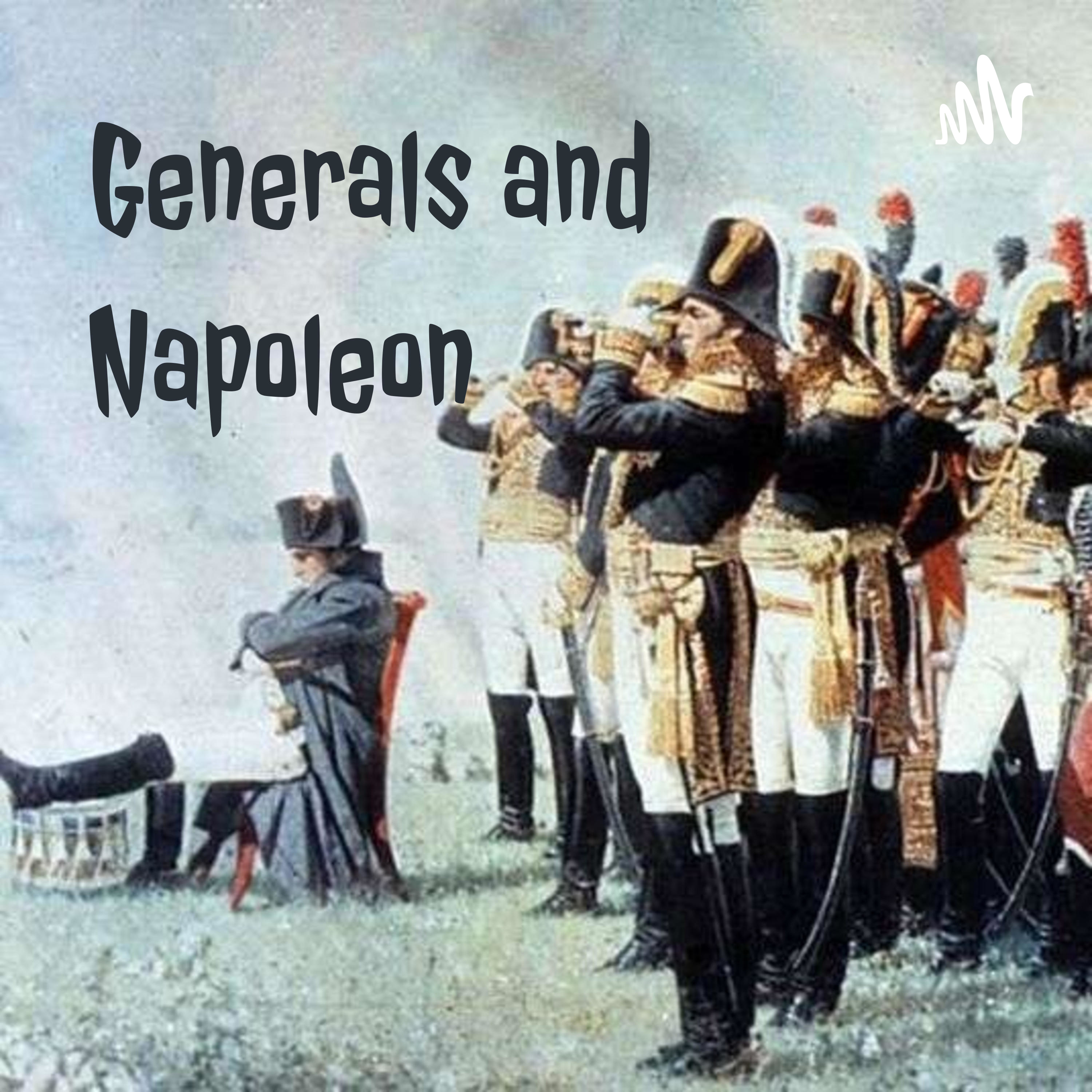
Generals and Napoleon
John W. Viscardo
Shipwrecks and Sea Dogs
Rich Napolitano
French Revolution & Napoleon (Grey History)
Grey History (William Clark)
The Life and Times of Frederick the Great
Alec Avdakov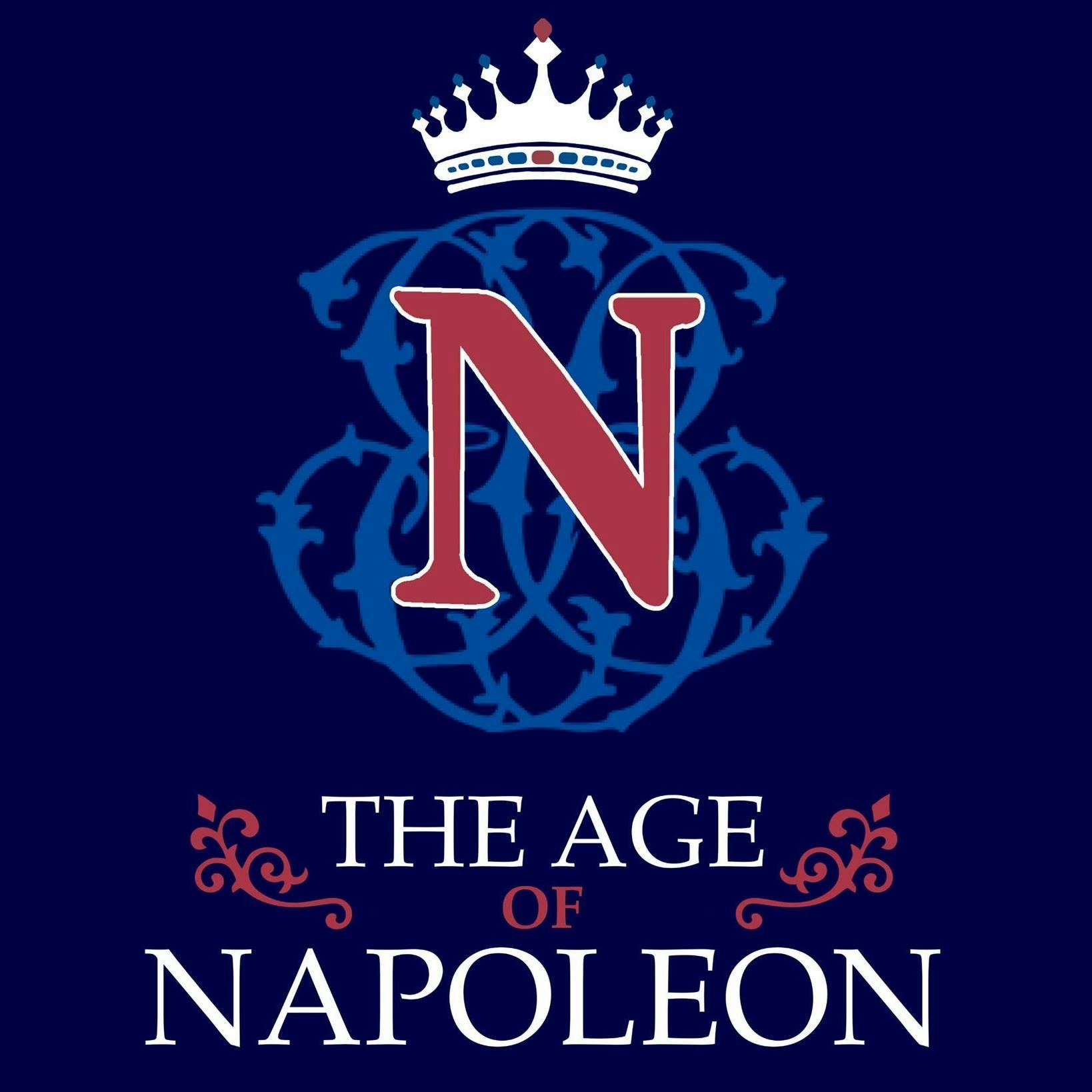
The Age of Napoleon Podcast
Everett Rummage
The Siècle History Podcast
Evergreen Podcasts
The Napoleonic Wars Podcast
Zack White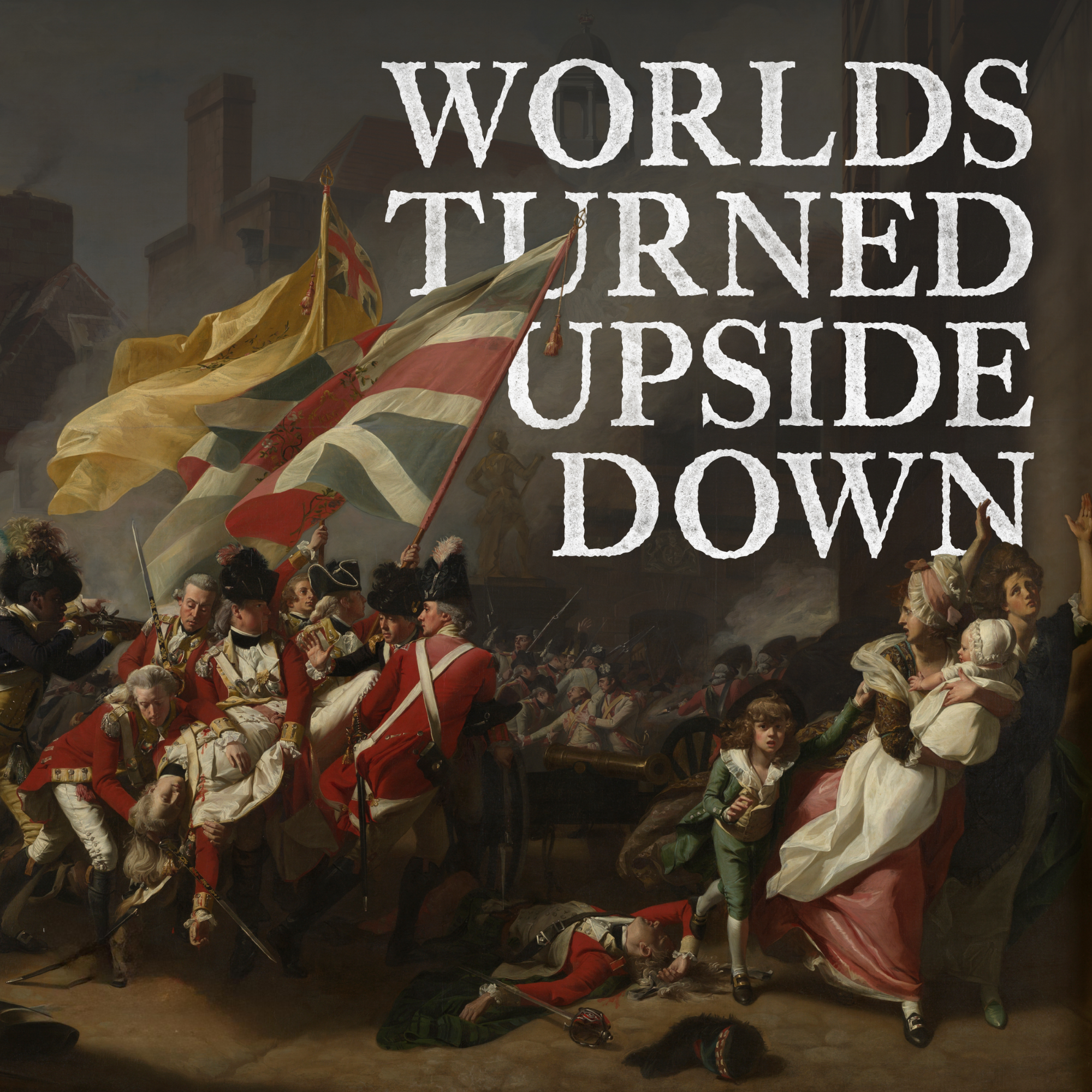
Worlds Turned Upside Down
Roy Rosenzweig Center for History and New Media
Empire-Builders
David Mainayar
Battles of the First World War Podcast
Mike Cunha
New York, Quebec, and The Water Route to the Center of the World
William Matthews
Deep into History
Deep into History
Battle Royale: French Monarchs
Ben Clarke and Eliza Sommers
A History of Japan
Justin Hebert
The French History Podcast
Evergreen Podcasts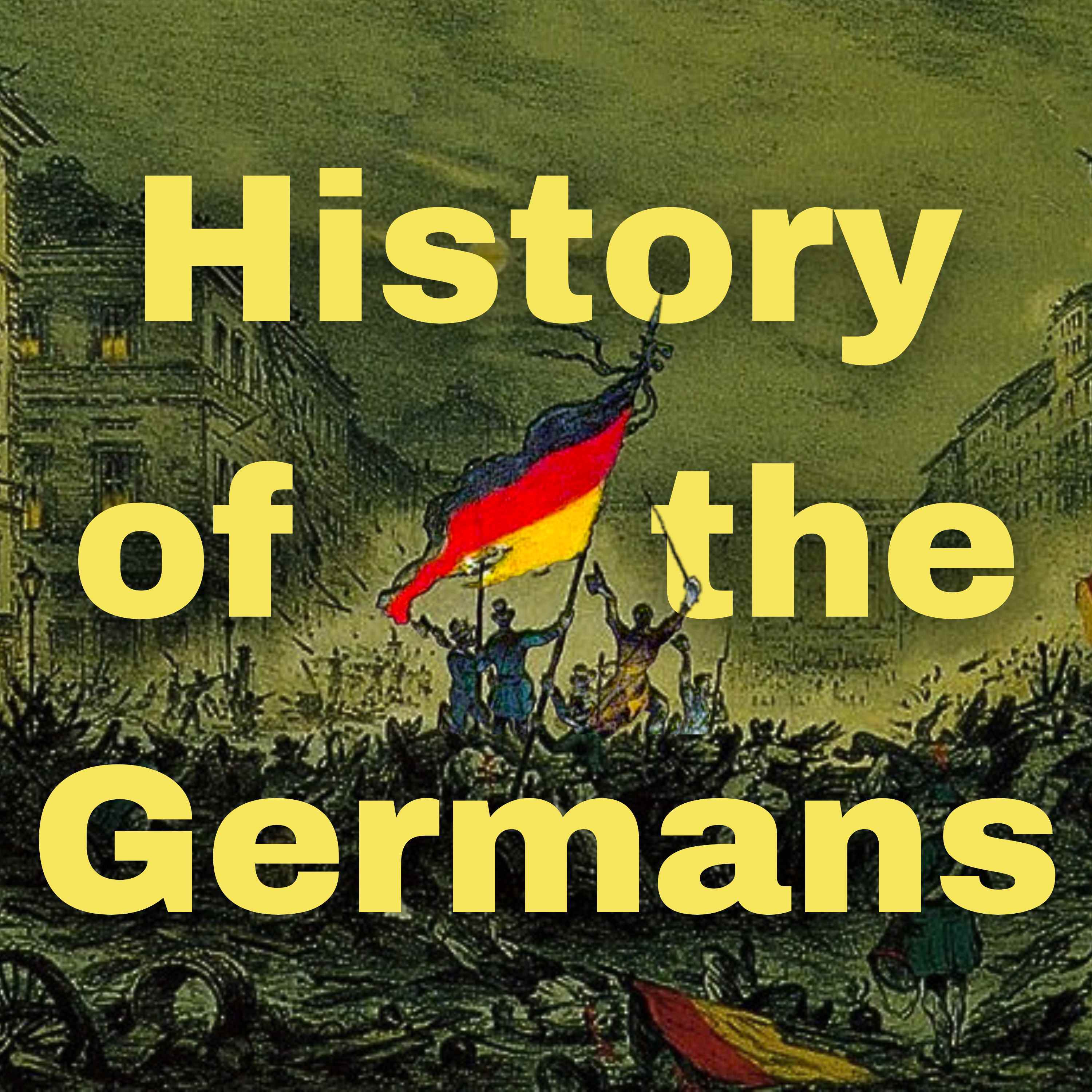
History of the Germans
Dirk Hoffmann-Becking
Half-Arsed History
Riley KnightFrench-Canadian Legacy Podcast
French-Canadian Legacy Podcast
The History of England
David Crowther
Canadian History Ehx
Craig Baird
Hugos There Podcast
Hugos There Podcast
Hugo, Girl!
Hugo Girl

